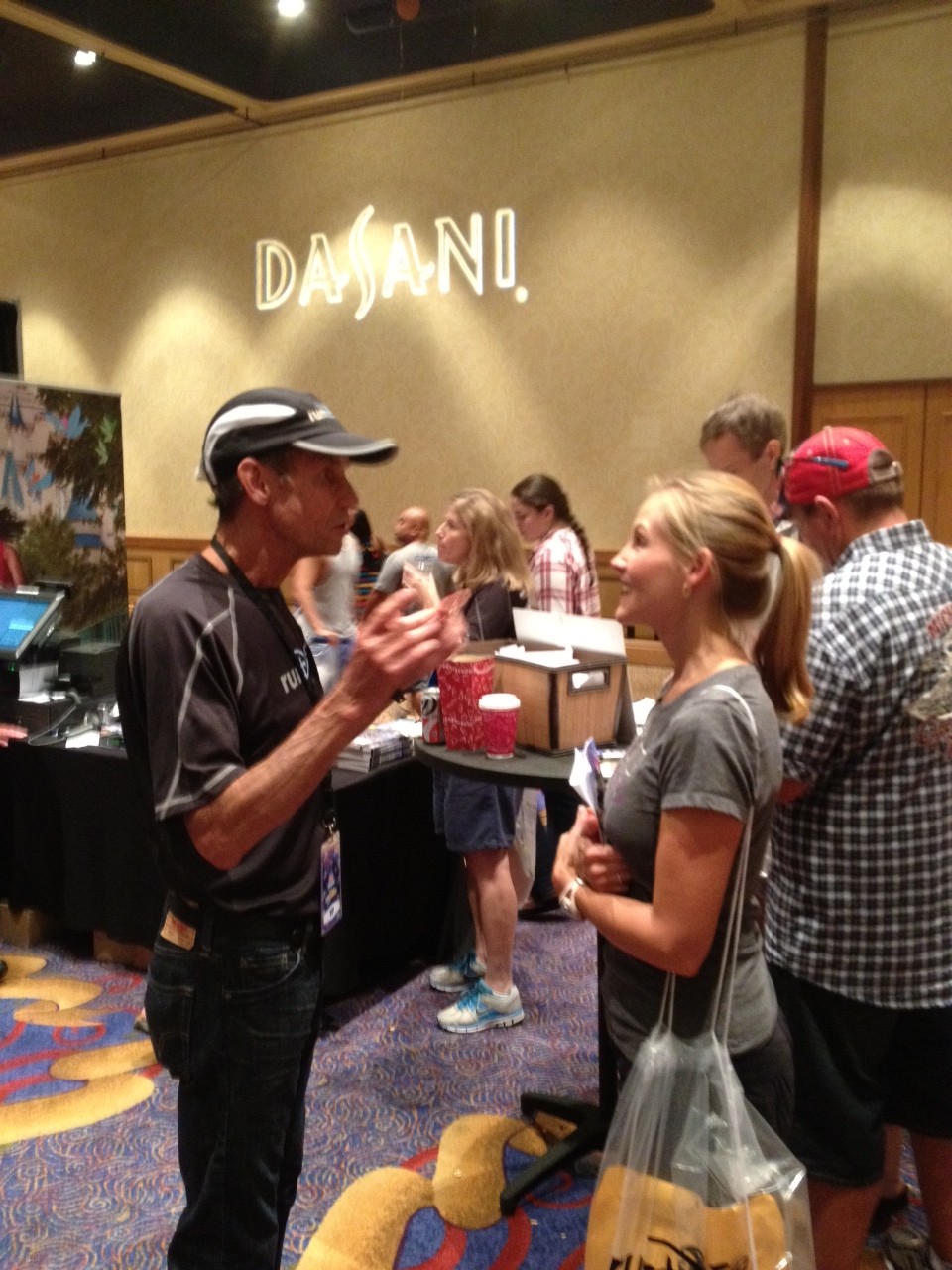It's a Run/Walk
"And walk in love, as Christ loved us and gave himself up for us." --Ephesians 5:2
Read: Ephesians 5
 An author, speaker and member of the 1972 Olympic team, Jeff Galloway is a world-class runner. He broke the U.S. 10-mile record in 1973, and among his victories are the Honolulu, Atlanta and Boston Marathons. What's his best tip? Walk. That's right. In fact, Jeff says, "Thousands of time-goal-oriented veterans have improved by 10, 20, and over 30 minutes in marathons by taking walk breaks early and often to reach their goal in the race. You can easily spot these folks. They're the ones who are picking up speed during the last few miles when everyone else is slowing down."
An author, speaker and member of the 1972 Olympic team, Jeff Galloway is a world-class runner. He broke the U.S. 10-mile record in 1973, and among his victories are the Honolulu, Atlanta and Boston Marathons. What's his best tip? Walk. That's right. In fact, Jeff says, "Thousands of time-goal-oriented veterans have improved by 10, 20, and over 30 minutes in marathons by taking walk breaks early and often to reach their goal in the race. You can easily spot these folks. They're the ones who are picking up speed during the last few miles when everyone else is slowing down."
Seventeen years ago, I stood in the middle of a rain-soaked football field in Austin, Texas and watched Jeff's theory being tested. For weeks she'd verbalize her goal: "One time around the track without stopping." What did she do when she didn't make it? She walked. And when she caught her breath, she'd run again. Turns out that long before my wife Loretta ever read a book by Jeff Galloway or listened to any of his seminars, she practiced what he preached. And I'll never forget the day she made it. We shouted for joy. (She eventually turned that one lap into 26.2 miles without stopping, several times a year.)
One time around the day. You may have just entered your cubicle, dropped the kids off at school or you're about to exercise. Whatever the case, the bible says we're to run the race and walk in love. So no matter what the world has stacked against you -- be encouraged -- it's a run/walk.
--Jimmy Peña
P.S. You know, it was pretty neat for me to see Loretta meet her hero of the track. Do you see him giving her instruction? The moment made me think that when it comes to the faith, you and I have an opportunity to follow some heroes and maybe lead as one. So today, as you run your race, make it a point to stand in the middle of someone else's lap and shout for joy.
WORKOUT OF THE WEEK: Shoulders & Legs
Many of our workouts are geared for the living room, but for those of you that are gym-goers, this one's for you. An odd combo you may not be used to involves training legs with shoulders. But we think you'll enjoy it as much as we do. You're going to hit legs first then attack shoulders. The top-to-bottom approach is so satisfying we think it just might become one of your go-to routines for two areas of your body that are important for different reasons.
With your shoulders, greater muscle tone goes a long way toward defining your torso's silhouette, giving the appearance of a smaller waist. But regular training of your shoulders is also a great way to bolster your resistance against injuries that can spring up suddenly with these complex, yet delicate joints. And training your legs intensely not only has tremendous athletic benefits -- those who are stronger on the squat tend to perform better on sprint and agility drills -- but these large muscles help your body to burn more total calories, both during and after your workouts.
Try this routine and post your responses in the comments below or at our forums.
Legs Squat (Smith or free-weight) - 4 x 6,8,10,12 Leg Press - 4 x 8,10,12,15 Romanian Deadlift - 4 x 10,12,15,20 Jump Squats - 4 x 20
Shoulders Overhead Press - 4 x 6,8,10,12 Upright Row - 4 x 8,10,12,15 Dumbbell Lateral Raise - 4 x 10,12,15,20
--Prior to training, perform a dynamic warm-up to raise your internal body temperature and to prepare your joints for the work ahead. Try 5-10 minutes of running in place, jumping jacks and jump rope, for example. Then, do a few light sets of the first exercise for each bodypart before your "working" sets.
NOTE: You'll notice that, on most exercises, the target number oreps increase with each successive set. This is called a reverse pyramid. This allows you to lift the heaviest weight early in the set, when your strength levels are highest. Then, as you fatigue, you can lower the weight to allow for more reps, which recruit additional muscle fibers and provide additional blood flow. This also adds volume to the workout, meaning more calories burned during your time in the gym. For each rep range listed, select a weight that brings about failure at that number. Failure is the point at which you can no longer complete clean repetitions on your own.
EXERCISE DESCRIPTIONS: To see some of these moves in action, visit exrx.net, one of the web's largest resources for exercise demos.